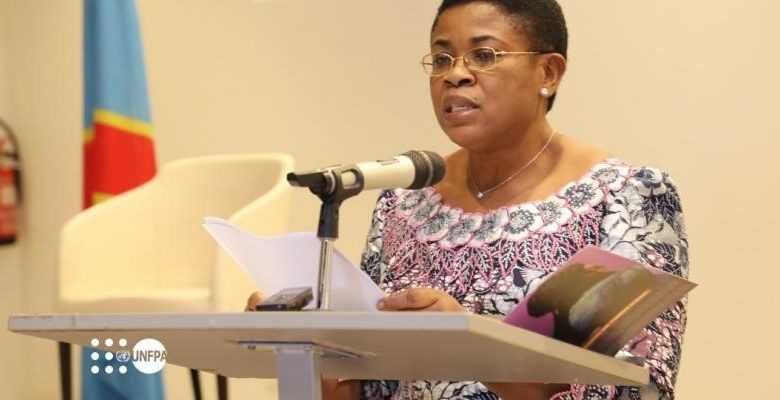DR Congo Among Top 5 Most Fertile Countries In The World

The Democratic Republic of Congo has one of the highest fertility rates in the world with an average of 6.2 children per family, thus placing it among the world’s five most fertile countries.
In some provinces of the country, there are families with an average of 10 children.
Reports show that the high birth rate is attributed to the lackadaisical way matters concerning women who produce the children are treated.
To check the situation, the Vice Prime Minister of DR Congo Madam Elisee Munembwe has recommended that matters related to the rights of women and girl children be tackled from their root causes.
Speaking during the launching of the 2020 World Population Report July 27 which term this year is “Against My Wish: Refuse practices that harm women and girls and are obstacles to equality”, the Vice Prime Minister called on the Congolese government and other partners to support reforms which favour the development of the woman and keep her away from danger.
“We must tackle the problem from its roots by attacking the profound causes notably the sexist norms within our communities which ignore the inconveniences and nefarious and violent practices which harm women and girl children.
“They restructure the economic and judicial systems with a view to guarantee for all women equal chances.
“For example, the modification of legislation concerning the right to succession could eliminate one of the principal reasons which pushes families to favour child marriage and put an end to early pregnancies and births.
“To this effect, the recent modification of the family code of the Democratic Republic of Congo has permitted the reinforcement of the rights of the woman and girl child”, declared the Vice Prime Minister.
Madam Elisee Munembwe said it is possible to “put an end to child marriages, violence and sexual abuses in all countries within ten years on condition that already deployed efforts are intensified to extend the scholarisation of girls, teach them current competences of life and implicate the men and boys in social changes”.
It should be recalled that during the celebration of the World Population Day on July 11, the Vice Prime Minister had declared that “with the will and enlightened vision, the Democratic Republic of Congo can assure the well-being of its population”.
She revealed that fertility among adolescents in the country stands at 109 to 1,000 and this is due to child marriages and the lack of the necessary information at the sexual and reproductive health services.
She added that although child birth had reduced from 37 per cent in 2014 to 29 per cent in 2018, it has since spiked again to 50 per cent especially in Grand Kasai and Tanganyika provinces affected by the humanitarian crises.
The absence of viable data for development planning is also one of the causes as the last general population and housing census in the country was carried out in 1984.
For the Representative of the United Nations Population Fund in DR Congo, Sennen Hounton, “a successful development policy cannot create deadlock on the mastery of demographic growth especially if this brings about situations which induce needs that national wealth production cannot satisfy”.
He appreciated the initiative by DR Congo president Felix Tshisekedi to institute free primary education, because “we all know that the education of the girl child is the hallmark of durable change.”
The UN official proposed the establishment of a vast programme against domestic violence and reiterated the engagement of the UN Population Fund.
This is to continue supporting, together with other financial and technical partners, the country’s efforts towards ensuring the best equivalence between population growth and economic growth for the reduction of poverty.
Hounton said the challenges facing the DR Congo raise concerns, especially rape on minors which should be tackled with zero tolerance.
Other issues include early marriages, education of the girl child as well as adolescent pregnancies, which can be solved through the enacting of laws on health, education on life and access to contraceptives.
Support Our Journalism
There are millions of ordinary people affected by conflict in Africa whose stories are missing in the mainstream media. HumAngle is determined to tell those challenging and under-reported stories, hoping that the people impacted by these conflicts will find the safety and security they deserve.
To ensure that we continue to provide public service coverage, we have a small favour to ask you. We want you to be part of our journalistic endeavour by contributing a token to us.
Your donation will further promote a robust, free, and independent media.
Donate HereStay Closer To The Stories That Matter




